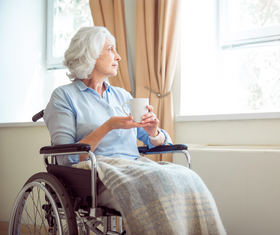
What To Know About Managing Mobility Issues With The Elderly
As we age, our mobility can become impaired, leading to a decline in our quality of life. Mobility problems can affect our ability to perform daily tasks, participate in social activities, and maintain independence. That said, the right mobility living aids and management strategies can help elderly individuals continue to live fulfilling lives.
In this post, we will share some of the ways that mobility problems can be managed in the elderly:
What Are the Most Common Mobility Problems?
Mobility problems can take many forms, and many factors can cause them. Some of the most common mobility problems in the elderly include:
- Arthritis: This condition causes joint pain and stiffness, which can make it difficult to move around.
- Osteoporosis: This condition weakens bones, making them more susceptible to fractures and breaks.
- Stroke: A stroke can cause paralysis or weakness on just one side of the body, making it challenging to move around.
- Parkinson's disease: This condition can cause tremors, stiffness, and difficulty with coordination and balance.
- Multiple sclerosis: This condition can cause numbness, weakness, and difficulty with coordination and balance.
- Frailty: Frailty is a condition that affects many elderly individuals, causing weakness, fatigue, and a decline in physical function.
How Can Mobility Problems Be Managed?
Several strategies can be used to manage mobility problems in the elderly. Some of these strategies include:
Exercise
Exercise is an essential part of managing mobility problems in the elderly. Regular exercise can help improve flexibility, strength, and balance, minimising the risk of falls and improving overall mobility. Aerobic exercise, like walking or swimming, can also improve cardiovascular health, which can help to prevent other health problems.
Physical Therapy
Physical therapy can be a truly effective way to manage mobility problems in the elderly. A physical therapist can work with individuals to develop a personalised exercise plan that addresses their mobility issues. Physical therapy can also help improve balance, coordination, and flexibility, reducing the risk of falls.
Assistive Devices
Assistive devices, like canes, walkers, and wheelchairs, can be helpful for individuals with mobility problems. These devices can provide support and stability, making it easier for individuals to move around safely. Many other types of assistive devices are also available, including stairlifts and mobility scooters.

Home Modifications
Making modifications to the home can also be helpful for individuals with mobility problems. This may include adding handrails in the bathroom, installing a stairlift, or making changes to the layout of the home to make it more accessible. These modifications can improve safety and make it easier for individuals to move around independently.
Medications
In many cases, medications may be used to manage mobility problems in the elderly. For example, pain medication may be prescribed to individuals with arthritis, while medications to manage tremors may be used for individuals with Parkinson's disease. It is vital to consult with a healthcare provider before taking any medications to address mobility problems.
Conclusion
Managing mobility problems in the elderly requires a multi-faceted approach that addresses the individual's specific needs. Exercise, physical therapy, assistive devices, home modifications, and medications can all help manage mobility problems and improve overall quality of life.
Working with a healthcare provider to develop a personalised plan that addresses the individual's unique mobility issues is important. With the right management strategies and high-quality mobility living aids, elderly individuals can continue to live fulfilling lives and maintain their independence.
If you're looking for mobility aids that can help with a specific condition, simply get in touch and we will see if we can help.



